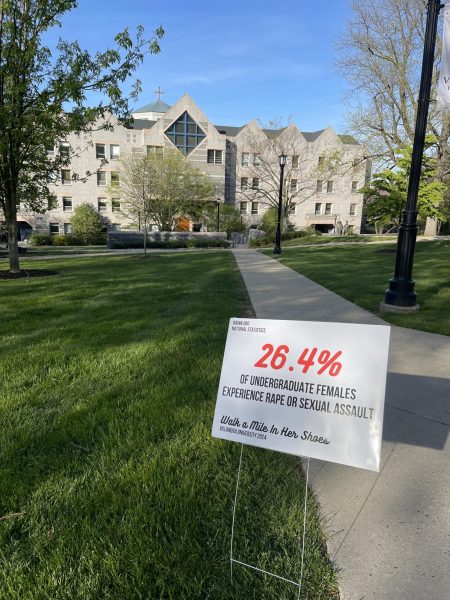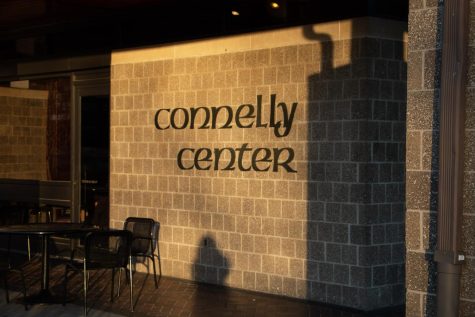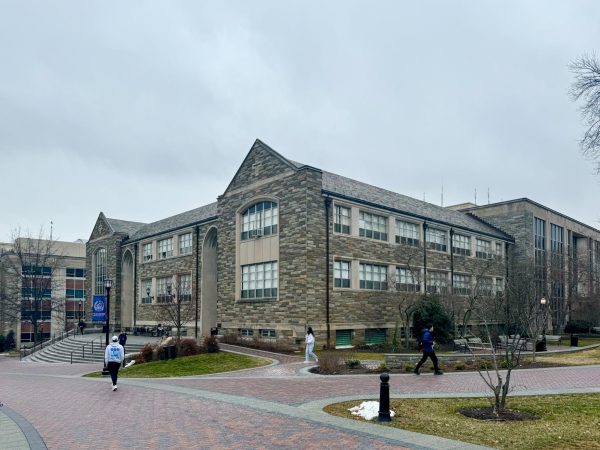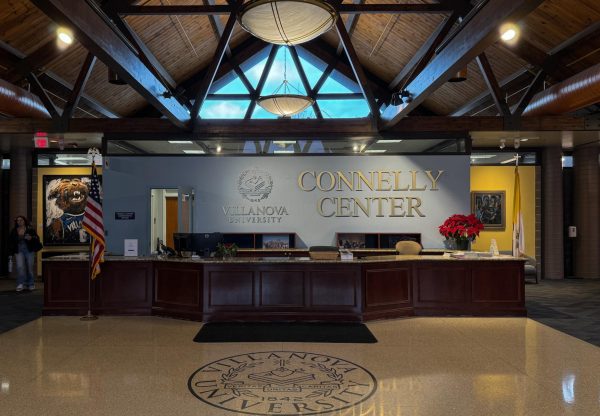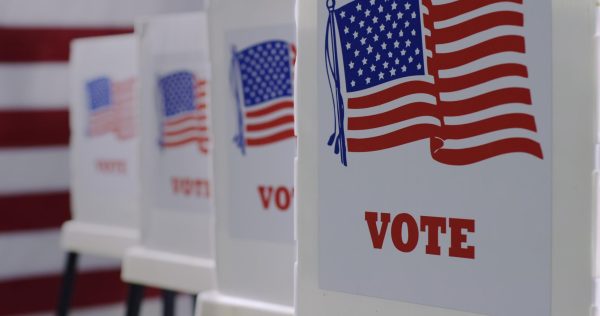John Edwards and plaintiffs’ lawyer
August 20, 2004
Dear Sir or Madam,
I am a citizen who believes that plaintiffs’ lawyers are perpetrating an egregious travesty on our society and legal system. I believe that the presence of John Edwards on the Democratic ticket should bring to the fore the important issue of the damage that plaintiffs’ lawyers are doing to our country. I hope The Villanovan will give a good airing in its pages of opposing viewpoints on this subject in the next two and a half months.
I have written strong opinions against plaintiffs’ lawyers in the past and append two of my past writings below. I offer my assistance if your newspaper wishes to endeavor to solicit from various parties, such as tort reform groups, bar associations, and law professors, written statements of their positions for publication in your newspaper.
Please contact me if I can be of help.
Thank you.
Robert D. Shattuck, Jr.3812 Spring Valley CircleBirmingham, AL 35223(205) [email protected]
[Two writings on plaintiffs’ lawyers subject]
TORT LAW IN BLACK AND WHITE
by Robert D. Shattuck, Jr. 3812 Spring Valley Circle Birmingham, AL 35223 (205) [email protected]
There is black and white in the tort law. A test of our legal and governmental institutions is whether a capacity exists to see the black and white and to act in a responsive manner. For a long time the nation’s legal profession and its legislatures, regulatory agencies and criminal law apparatus have exhibited an abominable collective failure. This is properly reportable to the citizenry.
What is black and white in the tort law?
It is black and white that a civil society rightfully seeks mechanisms for compensating its members in certain situations when they suffer physical and economic harms.
It is black and white that the body politic also rightfully seeks to regulate the activities of its members to lessen harms they may do to one another and to achieve a deterrent effect by punishing those whose deliberate or negligent actions cause damage to others.
It is black and white that our society has at its disposal a variety of mechanisms for providing compensation to members who experience losses. These include private insurance arrangements, welfare programs, natural disaster relief, charities and a civil law liability system.
It is black and white that our body politic has an extensive governmental regulatory regime and a criminal law system that regulate the activities of society’s members to lessen the damage they may do to one another and to punish in the name of deterrence those who deliberately or negligently cause harm.
It is black and white that no payments are “free,” and all the payments come out of someone’s pocket. The range of sources of the payments includes private insurance premiums, taxes paid to the government, gifts made to charities, and higher prices for goods and services so businesses can cover the liabilities that are imposed on them, or lower wages for employees of the businesses or reduced profits for their owners.
It is black and white that economic resources are scarce, not all losses can be fully compensated to the extent a caring society would wish, and society is confronted with an extraordinarily complex (and frequently heart wrenching) task of deciding who should get compensated how much for what losses and from what source of payment. Examples are innumerable. Soldiers are asked to give up their lives for their country or suffer grievous and lasting injuries and for whom the government must decide how much tax moneys should be provided in the way of compensation. Yearly tens of thousands of mothers and fathers die of cancer and other diseases, leaving children deprived of needed financial resources and critical elements of a nurturing family environment; and society must decide what to do about the losses these families suffer. Fifty thousand people are killed annually on the nations highways, the extent and cost of disabling injuries can only be guessed at, and society must have ways to provide some remedial compensation. Other losses for which society can well wish to provide compensation result from natural disasters, other accidents, potentially beneficial medical procedures, physical and economic crimes, drug, alcohol and gambling addictions, extreme social and educational deprivation, mental illnesses, and environmental pollution. Society cannot come anywhere close to making everyone entirely whole for all their losses, and a caring society will want to be judicious in allocating the scarce resources that are available among all the potentially deserving recipients of compensatory payments.
Not as black and white, but still quite obvious, is that, when it comes to regulating the activities of society’s members and meting out, in the name of deterrence, monetary fines and jail sentences as punishments, society thinks it would be wrong for government regulators and prosecutors to be paid according to how much in fines they collect or how much jail time they get people sentenced for. Also, regulatory fines do not go into private pockets but rather into the governments coffers and are available for carrying out its regulatory activities.
That is the black and white.
What then are the failings of the legal profession and of legislatures, regulatory agencies and the criminal law system?
The failings are discernible in connection with a civil jury in Hale County, Alabama, awarding $500,000,000 in punitive damages to three plaintiffs who were lied to by Whirlpool Corporation to the effect that the plaintiffs would have to make payments for about three years for a satellite dish, which would total roughly $1000, where in fact the contract called for payments for about 4-1/2 years totaling about $1600, or, in other words the plaintiff was to be cheated out of $600. There should be no doubt that the job of the legislature of Alabama, the state’s regulatory agencies and its criminal law system includes endeavoring to protect Alabama citizens from Whirlpool lying to customers and cheating them out of $600.
Accordingly, one could conclude that, if it is needed for the state of Alabama to resort to a $500,000,000 punitive damage verdict against Whirlpool in order to protect Alabama citizens, there has been an abominable failure of the Alabama legislature, regulatory agencies and criminal law apparatus in doing their job of regulating Whirlpool’s activities and imposing fines and jail sentences to deter Whirlpool from doing what it did. A $500,000,000 punitive damages verdict seems preposterous overkill. Before resorting to that, it would behoove the citizens of Alabama first to make a wholesale eviction from office of the incumbent legislature, regulatory agencies, and criminal law apparatus, and replace them with a new set of legislators, regulators, prosecutors and judges to see if the new group could do better in dealing with Whirlpool so that a $500,0000,000 punitive damage verdict can be foregone. Further, if new officials are not successful and it is concluded that such a penalty is ultimately needed, hopefully the new officials would have the sense to arrange for the penalty to be paid into the state’s coffers and be available to support regulatory efforts generally for the benefit all Alabama citizens, instead of allowing the penalty to be poured into the pockets of three private plaintiffs and their attorneys.
The possibility needs to be recognized, however, that there has not been such an egregious job failure on the part of the legislature, regulators and criminal law system as is suggested above. Conceivably it is a sham argument that $500,000,000 punitive damage verdicts are needed as a result of failure by the legislature, regulatory agencies and criminal law apparatus in regulating the activities of society’s members and meting out punishments for deterrent purposes. The argument may be a pretense to distract from something else that is going on with $500,000,000 punitive damage verdicts. The truth of the matter may be that the civil liability system has been shanghaied by a bunch of greedy lawyers who are running it for the purpose of enriching themselves, and $500,000,000 punitive damage verdicts are reflective only of how successful they have been in achieving their objective, and not at all reflective of a need society has as a result of any egregious and irremediable failure of the regulatory agencies and criminal law apparatus.
The problem is that, if this alternative explanation of things is correct, and the first suggested job failure is not so egregious as suggested, then the legislators, regulators, prosecutors, and judges are guilty of a second failure that would be equally deserving of condemnation. This second failure would be the failure to stand up and defend themselves, and say the truth of the matter, to wit, that the regulatory regime and criminal law apparatus are not so deficient, the argument that they are irremediably deficient to such a degree that $500,000,000 punitive damage verdicts are needed is a sham and subterfuge, a bunch of greedy lawyers has hijacked the civil law liability system for their own enrichment, and that system needs to be reclaimed by and for the people in order for it to serve properly societys legitimate goals of judiciously providing compensation for losses that citizens suffer.
A further possibility here is that Alabamas legislators, regulators, prosecutors and judges do not understand sufficiently what is black and white about tort law and may not know of the pretense argument being made by the lawyers who have hijacked the civil liability system. If there is a lack of understanding, a partial excuse would exist for those officials failing to stand up in their own defense and failing to tell the public the truth about what is really going on.
Such a partial excuse would, however, point to a final failing, and perhaps the worst failing, which would be that of the legal profession as a whole. That profession is best trained to know and understand what is black and white in the tort law, to examine whether significant deficiencies in the regulatory and criminal law systems exist, to evaluate whether any inadequacies are so substantial and irremediable that alternative means must be found to regulate and to mete out punishments, to decide whether $500,000,000 punitive damage verdicts are needed, and to reach conclusions about whether the civil liability system has been hijacked by greedy lawyers who are running it to enrich themselves and to the detriment of serving society’s purposes. Surely the legal profession’s obligations to society at large would include informing the legislatures, regulators, prosecutors and judges about such matters. This would be particularly so if those officials lack an adequate understanding of things, and thus are not able to state their own defense against the hijacking lawyers who would assert that $500,000,000 punitive damage verdicts are needed, and further are not able to find the way to seize back the hijacked civil liability system from those lawyers so that the system can serve the citizens the way it should. For the legal profession not to fulfill such an obligation would seem the worst failing of all those considered here.
There is black and white in the tort law. For a long time an abominable collective failure has occurred on the part of the legal profession and the legislatures, regulatory agencies and criminal law apparatus to recognize the black and white and to act responsively for the citizens they serve. One cannot be entirely optimistic that these parties will sort out anytime soon their respective failings. The legislature in Alabama may be in the process of taking a positive step. The citizens, in all events, should be informed of what is black and white and should know about the collective failure that has gone on for many years.
PLAINTIFFS’ LAWYERS AREN’T THAT GOOD
by Robert D. Shattuck, Jr. 3812 Spring Valley Circle Birmingham, AL 35223 (205) 967-5586 [email protected]
The plaintiffs’ lawyers are not so good that they deserve the pay they get. They get their pay because they have rigged the legal system, and that should be changed.
The plaintiffs’ lawyers are actors in society’s systems that, first, make transfers of money to citizens who have suffered damage and, second, punish, in the name of deterrence, persons whose actions cause damage to others.
Society should have these systems. Society does have them, the mechanisms are multi-faceted, and millions of workers are gainfully employed in the implementation of the same. For the most part these persons receive reasonable wages for the work they do.
A major structural component in the overall scheme is private insurance. Insurance works to protect citizens from losses by means of their paying premiums to insurance companies that, in turn, pay money out to insureds who have the misfortune of suffering an insured loss. There are costs in the administration of private insurance that include many employees involved in claims processing (clerical personnel, claims adjusters, investigators, etc.), not to mention battalions of salesmen trying to persuade customers that insurance protection is wise and the insurance offered by the salesman is better than another product. By reason of the regular operation of the laws of supply and demand in the labor marketplace, the employees in the industry generally receive reasonable and justifiable compensation for their work in the implementation of a private insurance system whose object is to make transfers of money as described.
Another money transfer system involves tax dollars, to wit, government welfare programs (including natural disaster relief). In this realm, society, through its elected representatives, decides that people who are needy for various reasons (including natural disaster) should have transferred to them money that comes out of taxes collected from the citizenry at large. Legislatures determine the amounts to be paid, and the programs employ many workers, at modest salaries, to determine who qualifies for welfare and to make and monitor payments. Because the programs cost taxpayers money, and because people do not like to pay taxes, pressures are generally present to keep costs down, including those of administration.
In addition, society has two parallel systems, its criminal law system and its governmental regulatory system, that mete out penalties such as jail sentences and fines to try to deter citizens from doing things that cause damage to other members of society. The governmental regulatory system includes forcing companies to pay for things like environmental clean up or back pay to employees where there has been unlawful discrimination in the workplace. This regulation can involve substantial amounts of money, and companies, which are trying to operate profitable businesses for their stockholders and employees, will resist making the payments.
In these two parallel systems, there are employed hundreds of thousands of police and other law enforcement agents, lawyers, prosecutors, investigators, scientists, researchers, accountants, legislators, judges and other administrative and clerical personnel. These workers first write the criminal laws and governmental regulations that intimately affect both personal freedoms and trillions of dollars of economic commerce. More extensively, these employees carry out the wide range of activities needed to enforce the law and regulations, including investigating whether violations may have occurred. conducting tribunals to make legal determinations as to whether violations have in fact occurred, and determining and administering sanctions. The army of workers who toil in this area, under the economic laws of supply and demand, do so for reasonable wages. Tops might be $175,000 a year for a senior government lawyer.
This brings us to the plaintiffs’ lawyers, and the compensation they receive for the work they do.
As stated, the plaintiffs’ lawyers are actors in society’s systems for making transfers of money to people who have suffered damage and for punishing, in the name of deterrence, those whose actions cause damage.
The question is: Do plaintiffs’ lawyers deserve the ungodly amounts of money they are paid?
Take automobile accidents as an example. Somewhere in the range of fifty thousand people a year are killed; the extent of non-fatal injuries and economic losses growing out of car accidents can only be guessed at. For discussion purposes, put annual aggregate losses at $150 billion (which has a semblance of rationality if the value of a human life is put at $1,000,000 as an approximation of the amount an average person would earn over twenty or twenty five years, which would put the loss of life component of the total loss in the range of $50 billion).
This $150 billion annual amount of losses from car accidents alone is a significant nut to crack for society’s mechanisms for making transfers of money and punishing people to deter undesired behavior. A large part of the loss will be covered under private life, medical and property insurance (paid for out of insurance premiums paid by all insureds). A significant portion of the total loss likely goes without any compensation ($35 billion could be a guess of what this uncompensated amount might be).
On the criminal law and regulatory fronts, the police and the courts try to reduce the amount of drunk driving that goes on in the country, and the National Highway Traffic Safety Administration spends substantial amounts budgeted to it by Congress in carrying out extensive regulatory activities to try to improve car and highway safety.
Then come the plaintiffs’ lawyers — the ones who get a judge and jury to extract $100,000,000 from an automobile company regarding, for example, an accident involving a vehicle whose fuel tanks arguably could have been mounted in an overall safer way (but maybe not, the safety of the totality of the engineering involved being a bit complex to evaluate intelligently), plus possibly a drunk driver plaintiff who was the most to blame for the accident. For his work, the trial lawyer gets to keep, say, $33,000,000, at an effective rate of compensation of, say, $15,000 per hour of work.
That $33,000,000 eventually comes out of higher prices for cars or lower wages for auto industry employees or lower returns to pension funds owning stock in the company’s stock. People who do not like paying taxes for welfare programs should also object if they are being nicked by higher car prices or lower wages or reduced stock returns in their 401(k) retirement plan, in order for plaintiffs’ lawyers to be compensated at the rate of $15,000 per hour.
Looked at another way, $33 million could pay for a lot of services of legislators, government lawyers, investigators, judges, and other regulatory bureaucrats, working for reasonable compensation, who are engaged in the serious business of designing and administering the criminal law system and the governmental regulatory system that endeavors to get persons (including automobile manufacturers) not to do things (including building unsafe cars) that damage other members of society.
Do the plaintiffs’ lawyers, for the role they play and the work they do, deserve to be paid what they get paid? If they do not deserve their pay, how do they manage nonetheless to get the pay?
The answer to the first question is, in the opinion of many people, all things considered, categorically, no, plaintiffs’ lawyers do not deserve what they get paid.
The plaintiffs’ lawyers will reply that it is all a free market economy, and, if entertainers and sports stars can command stratospheric levels of compensation under free and open competition of public performers, then, by the same free market principles, the plaintiffs’ lawyers deserve whatever they can obtain by way of what they do in the legal system, it being open to all lawyers to compete there and bid down legal fees if legal fees are too high.
There is a telling difference. People who, by the millions, shell out $50 or $100 of their hard earned money (or their parents’ hard earned money) for a ticket to a basketball game or a rock concert do so because of the pleasure they derive from attendance, and, in terms of alternative uses of their money, they choose to buy the ticket as opposed to use for another purpose. That being the case, one is able (perhaps reluctantly) to accept the ungodly amounts received by sports and rock stars who provide the desired pleasurable experience better than anyone else.
The plaintiffs’ lawyers, on the other hand, have rigged the legal system so that the pay they receive is decided by judges and juries who are not spending their own money, who do not think in terms of alternative use for the money, and who frequently act as if the money is not coming out of anyone’s pocket. This mentality results in mindless verdicts, and the plaintiff, who stands to have bestowed on him stupendous fortune growing out of his misfortune, is not going to quibble about the prospect of $33,000,000 out of $100,000,000 going to the trial lawyer, the guy who makes it all happen.
A rigged system is the answer to the second question of how the plaintiffs’ lawyers get the outrageous amounts they get.
This brings us to today’s mother of all trial lawyer takedowns, namely, the tobacco settlement or settlements. The national settlement has been swept off the table for now, but one can be certain that the mind boggling scores of billions of dollars the plaintiffs’ lawyers have in mind for themselves ($92,000 per hour of work, Senator Gramm recently estimated) will remain on the table in one way or another (individual state settlements, massive fallback tort litigation, renewal of national settlement efforts next year, new targets such as computer keyboard manufacturers and repetitive stress injuries).
Society, through its political, legislative and legal processes, and subject to constitutional limitations, is entitled to decide, and should decide, as a matter of public policy, the amounts, if any, under all circumstances considered, that should be extracted from the tobacco industry (and the tobacco industry’s stockholders, customers and employees), and also the use of the money that is extracted.
Society has gone lunatic, however. if it allows plaintiffs’ lawyers to be compensated to the tune of $92,000 per hour for the tobacco related work they have done. More like one thousand dollars per hour might pass for justifiable.
The plaintiffs’ lawyers are just not that good, except in how well they have rigged the legal system over the years and, from there, bootstrapped themselves into a central position in the public policy arena to exact mind boggling tribute in connection with society’s public policy decisions related to the tobacco industry. The untrammeled greed of the plaintiffs’ lawyers has been bad enough running amuck in a rigged legal system; to witness its unleashing in entire realms of public policy is positively sickening.





